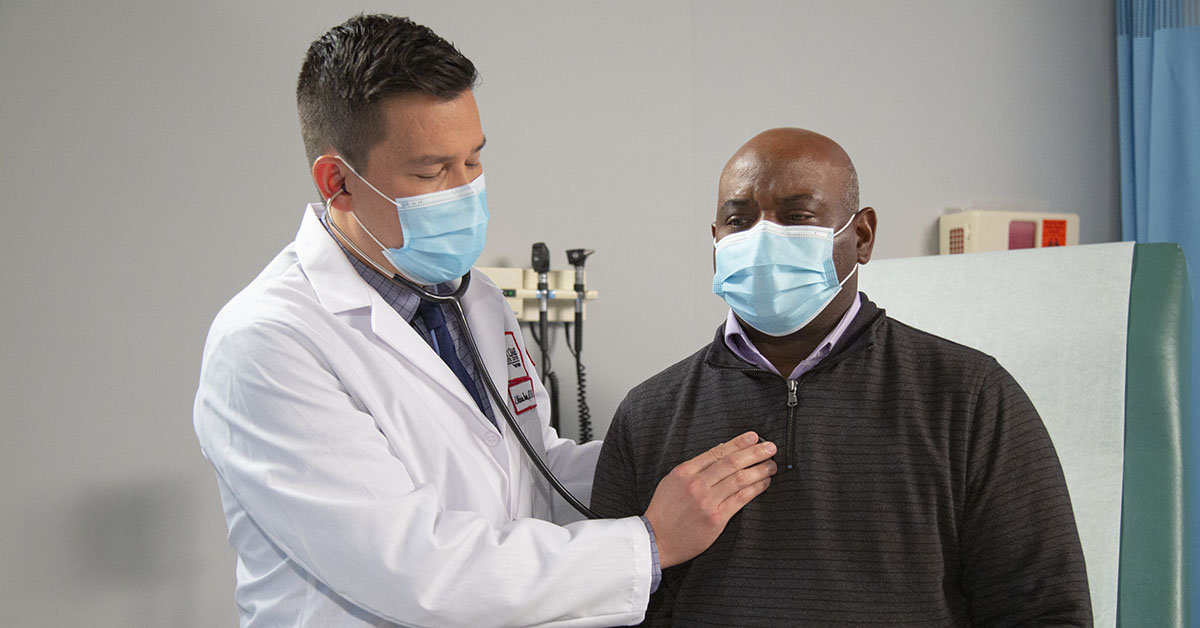Weather Alert: Fox Chase remains open, though some appointments or services may be adjusted. Patients will be contacted directly if their visit is affected. Please check Foxchase.org for updates and monitor myTempleHealth for changes to scheduled appointments.
Breadcrumb
- Home
- Thrive Cancer Blog
- The Link Between Estrogen and Lung Cancer

The Link Between Estrogen and Lung Cancer
-
Updated November 17, 2020
Here’s a shocking statistic: In the United States, about 20% of people who die from lung cancer every year have never smoked or used any other form of tobacco.
“We are seeing a greater percentage of lung cancer patients who have never smoked,” said J. Nicholas Bodor, MD, PhD, MPH, a thoracic medical oncologist at Fox Chase Cancer Center. “It’s not clear whether this is because smoking rates have decreased nationally, resulting in a smaller proportion of smoking-related cancers, or because the actual absolute number of never-smoking cases is increasing. What is clear is that we are seeing more and more of these patients in our clinics who develop lung cancer but have little or no smoking history.”
It’s true that smoking remains the number one cause of lung cancer. But, because people who’ve never smoked now make up such a significant portion of lung cancer diagnoses, researchers are beginning to hone in on other risk factors.
One of those risk factors could be estrogen, according to data from Fox Chase Cancer Center researcher Margie Clapper, PhD.
A Newer Research Focus
In a study published recently, Clapper, Deputy Scientific Director and Co-leader of the Cancer Prevention and Control Program at Fox Chase, found that the human lung can metabolize estrogen into a number of derivatives, including some that may be cancer-causing.
“Our finding underscored the importance of understanding and treating lung cancer as a disease with more than one cause,” said Clapper, the lead author on the study. “While it is true that smoking tobacco is the top risk factor for lung cancer, a substantial number of people receive a diagnosis despite having never smoked.”
Estrogen has long been linked to increased risk of breast and endometrial cancers, but this study was the first to demonstrate the ability of the human lung to convert the hormone into numerous metabolites, yielding a carcinogenic derivative.
The research also showed that the production of the carcinogenic estrogen metabolite varies with race, ethnicity, sex, and smoking status.
While estrogen metabolites were detected within the lungs of both men and women, men had lower levels, as expected. Chinese-American women produced more of this so-called ‘bad’ estrogen than non-Hispanic white women, which makes sense as Chinese never-smoking women have much higher rates of lung cancer than never-smoking European and Caucasian women.
Fox Chase’s Dedicated Clinic
In an effort to understand why so many people who have never smoked are being diagnosed with lung cancer, Fox Chase opened a first-of-its-kind Never Smokers Lung Cancer Clinic. The clinic is recruiting patients and is open to individuals who:
- Have never smoked
- Have a tumor mutation, like EGFR or ALK, that is commonly seen in never-smokers
“Our clinic specifically addresses the needs of people who have never smoked, which is important because they need different treatments,” said Joseph Treat, MD, a medical oncologist and a Professor in the Department of Hematology/Oncology at Fox Chase. “Many have certain mutations, such as EGFR – a common mutation seen in never-smokers – that tend to be responsive to particular treatments but not to others, such as immunotherapy,” Treat said.
Together surgical, medical, and radiation oncologists, as well as pulmonologists, work with researchers like Clapper in a multidisciplinary approach to identify possible risk factors for lung cancer and develop better screening and treatment options. In addition to providing support, the clinic aims to enroll patients in Clapper’s ongoing clinical research studies.
“This is just one foundational approach we are looking into at Fox Chase,” Treat said. “We have good treatment options for never-smokers who develop lung cancer and, with our lung cancer clinic for never-smokers, we are developing additional strategies.”
Learn more about lung cancer treatment at Fox Chase.
